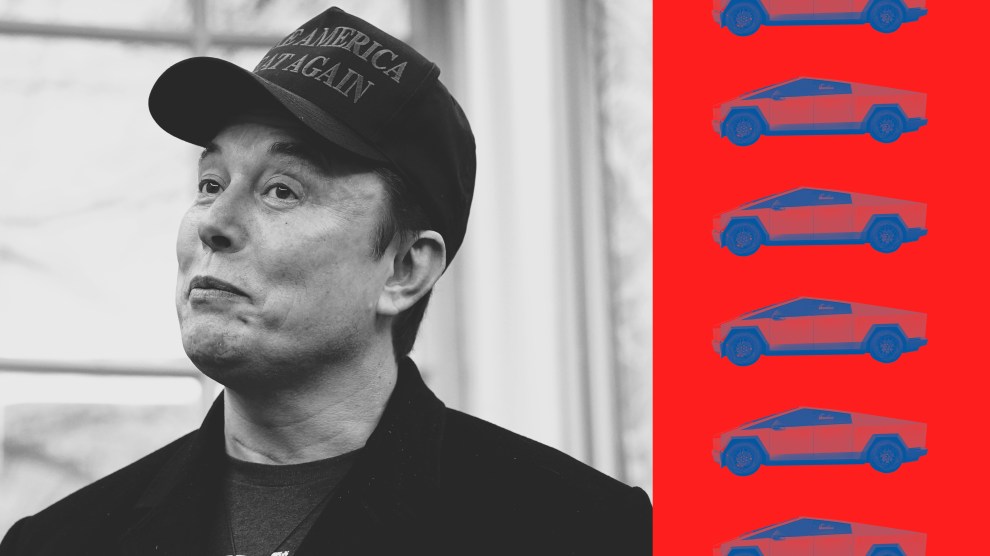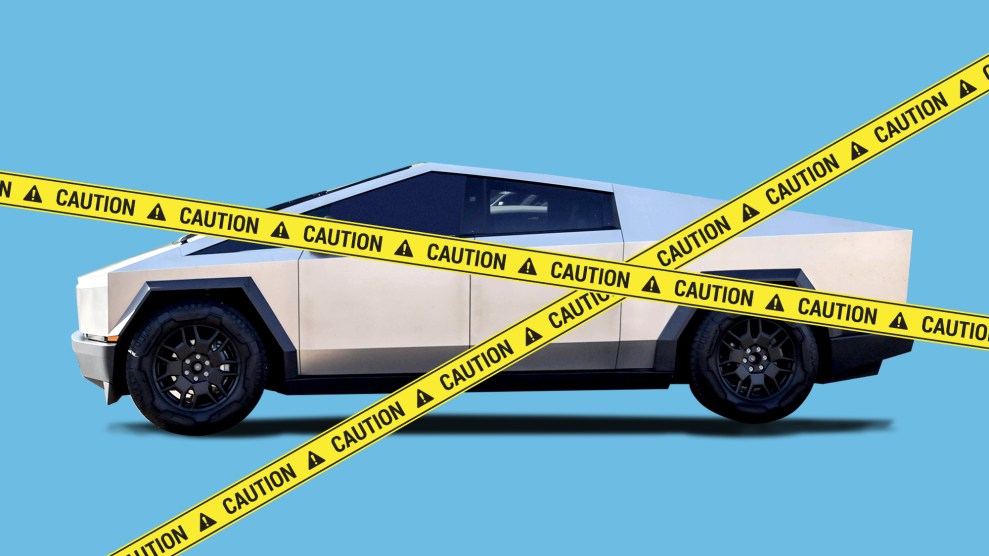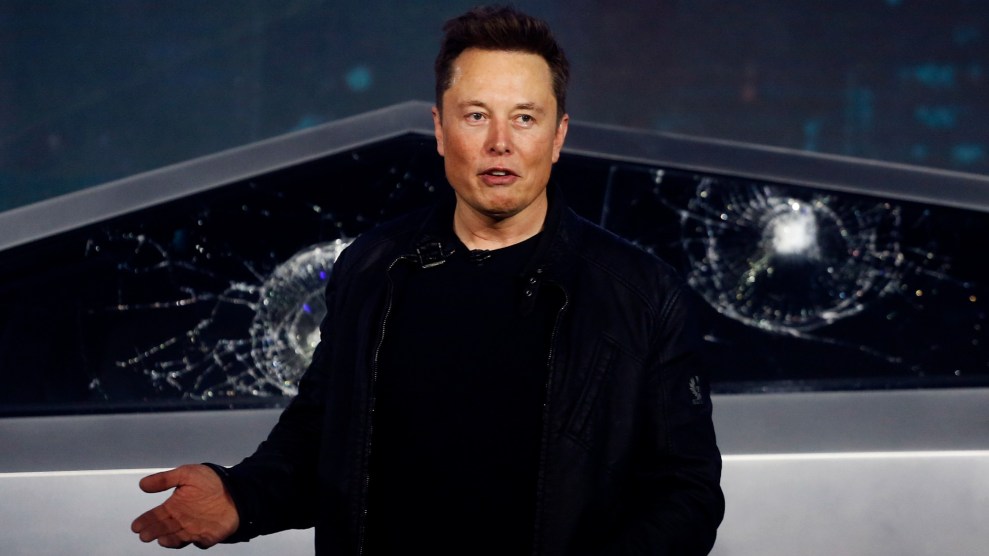
Mother Jones illustration; Alex Brandon/AP
Update February 13, 12:32 p.m.: After initial reports, the State Department said it had put plans to buy armored electric vehicles that could have benefited Elon Musk on hold.
The State Department said it could spend $400 million to buy Tesla Cybertrucks and cover them in armor this year, according to public records. This caused an understandable freakout. But the full story is a bit complicated.
As Drop Site News reported, in the late days of the Biden administration, after President Donald Trump won his election, the State Department listed a potential fiscal outlay of $400 million for “Armored Tesla (Procurement Units).” Late Wednesday, the State Department document listing planned vehicle purchases changed the label to remove the brand name. In the most recent version of the document, a secondary $40 million contract—for “Armored EV (Not Sedan)”—is also listed, bizarrely, under the category of “Ice Manufacturing.”
All the weird listings aside, the State Department is, according to available documents, potentially going to buy $400 million in what appears to be Cybertrucks and armor for Cybertrucks—causing a bevy of potential conflicts of interest. As Gizmodo notes, that does not mean the contract has yet been awarded.
Musk said he was unaware of the potential contract late Wednesday. “I’m pretty sure Tesla isn’t getting $400m,” he wrote. “No one mentioned it to me, at least.”
Musk, whose businesses have already received $13 billion in federal contracts over the past five years, spent $250 million to elect Donald Trump. He is also now the head of a government-axing initiative called the Department of Government Efficiency. White House Press Secretary Karoline Leavitt has said the billionaire’s involvement in government—as a major government contractor himself—shouldn’t worry anyone: He will essentially monitor his own conflicts of interest.
If the point of having armored vehicles is to keep State Department workers safe, then the potential choice of Tesla raises some questions. As my colleagues have reported, Telsas are not particularly safe cars. One study shows they are 17 times more deadly than the infamously-combustible Ford Pinto, and are known to rust quickly, lock drivers inside their cars, struggle in snowy conditions, and get stuck in the mud.
Some portion of that $400 million contract, as the New York Times reported, is likely destined for companies like Utah’s Armormax, which “installs bulletproof glass and other equipment to convert the Cybertruck passenger compartment into a ‘cocoon’ that protects occupants,” according to the Times.
However, it’s also not clear how well the Tesla Cybertruck performs in conflict zones. One Chechen warlord, who installed a machine gun on his Cybertruck and said he’d send it into battle in Ukraine back in 2022, was skewered online for retrofitting his truck into an “effectively useless” military vehicle.


















